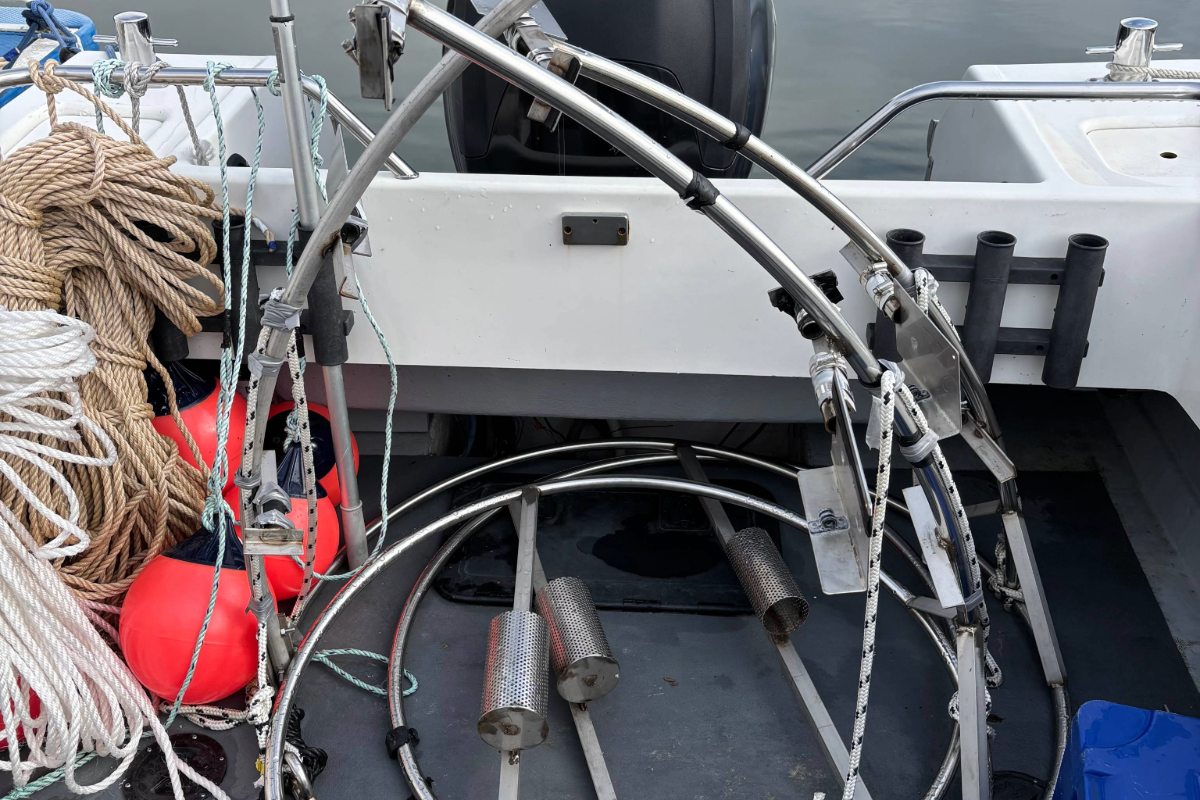
We discussed habitat and skate behaviour and how sites are chosen for survey and the Navionics application used to identify potentially interesting sites. and were given first-hand experience of how the boat and equipment is managed, the methodology and process. MaCCOLL will adopt a lot of these learnings going forward. we spent a lot of time talking about data processes and there
are a few improvements we can put into place. For example, separating the recording of flapper skate data from other species. It was reassuring to note that the Skat Trust stores data on the national marine database using Sea Search as we are currently doing.
We discussed community engagement and how he uses the work at the Orkney Skate Trust (OST) to inform the community and the scientific community.OST has well designed and established website which has some great flapper skate video content including the film “Uncommon. They have a section where anybody who sees a flapper skate or egg case can record it and place a pin on a map. OST also use social media to update the community. OST have become one of the foremost experts on flapper skate through his citizen science work and often talk at events. They talk to creel fishermen and other charter boats to find out if they have seen or caught Flapper Skate primarily to find out the location so that he can drop their BRUV where flapper skate have been seen.
In summary, this was a really beneficial trip which will provide huge benefit to MaCCOLL’s flapper skate project.
Learning Outcomes
- Increase knowledge on flapper skate and methods of research.
- Increase knowledge on equipment used for citizen science marine research.
- Increase knowledge in how to engage the wider community in research about flapper skate.
